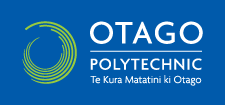Freedom to learn
| “ | The real "haves" are they who can acquire freedom, self-confidence, and even riches without depriving others of them. They acquire all of these by developing and applying their potentialities. On the other hand, the real "have nots" are they who cannot have aught except by depriving others of it. They can feel free only by diminishing the freedom of others, self-confident by spreading fear and dependence among others, and rich by making others poor. | ” |
| —Eric Hoffer, 1955 | ||
The sharing of knowledge is not a new phenomenon. In our daily lives, we share knowledge freely, including:
- when a parent intervenes in the upbringing of child;
- when a teacher presents a lesson;
- when a student uses what he/she has learned and adapts it to his/her local context.
Fortunately, when we share knowledge, we can still use it for our own benefit. Knowledge grows with reuse. If we think about knowledge as a system, it is sustainable and scalable. In the video below, "Reflections on Digital Freedom"[1], Archbishop Emeritus Desmond Tutu, former Chancellor of the University of the Western Cape in South Africa, reflects on the importance of the freedom to learn in education.
Digital freedom is an expression which encapsulates the spirit of collaboration now possible with the open web, in particular the principles of sharing, remixing and leveraging the work of others for the benefit of society. Sadly, much of the world's knowledge is locked behind restrictive copyright provisions - and much of this knowledge is inaccessible and unaffordable, particularly for the majority of citizens in the developing world. Moreover, these copyright provisions have not kept pace with advances in digital technology.
For those of us who believe that education is a common good (and are interested in working together in the co-creation of free content for education), these advances in digital technology and collaborative authoring software are timely and welcome.
Video reflection
|
Notes
- ↑ An extract from the opening of the Digital Freedom Exposition, held in Cape Town, South Africa, April 2007.

